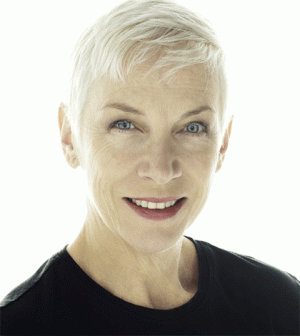- Finding Unshakable Power in a World That Wants to Pull Us ApartPosted 5 months ago
- What could a Donald Trump presidency mean for abortion rights?Posted 5 months ago
- Financial Empowerment: The Game-Changer for Women in Relationships and BeyondPosted 6 months ago
- Mental Health and Wellbeing Tips During and After PregnancyPosted 6 months ago
- Fall Renewal: Step outside your Comfort Zone & Experience Vibrant ChangePosted 6 months ago
- Women Entrepreneurs Need Support SystemsPosted 7 months ago
Singer Annie Lennox calls for solidarity to help most vulnerable women

By Anna Pujol-Mazzini | Thomson Reuters Foundation
The award winning singer-songwriter started advocacy group The Circle to help women living in poverty.
The challenges women face in the developing world, such as poor education and healthcare, child marriage and female genital mutilation may seem insurmountable, but change can come through solidarity from women in rich nations, said singer Annie Lennox.
While the disadvantages of women in poor countries are not being addressed, women in rich countries could use their power for good, Lennox said.
“This is how I see feminism, about the empowerment of women,” she told the Fortune Most Powerful Women International Summit in London on Tuesday.
Lennox, an award winning singer-songwriter turned women’s rights and AIDS activist, started advocacy group The Circle to enable influential women to use their skills and resources to help women living in poverty.
She stressed the importance of men joining the women’s rights movement, praising a law change in Malawi to ban child marriage.
In 2015, Malawi passed a law to raise the minimum age of marriage to 18 with UN Women working with traditional male chiefs to change local practices.
Lennox, who shot to global fame in the 1980s with the Eurythmics band, now devotes most of her time to women’s rights campaigning and raising awareness about HIV/AIDS.
She decided to become an activist when she witnessed former South African president Nelson Mandela in 2003 describing the HIV/AIDS pandemic as a virtual genocide of the South African people, in particular of women and children.
While great strides have been made in treating and preventing HIV/AIDS, in many developing countries, inequality, social pressures and lack of education about the virus often make women more vulnerable to HIV infection than men. In sub-Saharan Africa, women and girls make up the majority of the HIV-positive population.
HIV/AIDS is the leading cause of death among women of reproductive age, according to the World Health Organization.
“We think of HIV/AIDS in a particular way but we don’t understand who is at the epicentre of the AIDS pandemic in Africa, and it is young girls and young women,” Lennox told the Fortune Women Summit in London.
(Reporting by Anna Pujol-Mazzini @annapmzn, Editing by Ros Russell. Please credit the Thomson Reuters Foundation, the charitable arm of Thomson Reuters that covers humanitarian news, women’s rights, trafficking, property rights, climate change and resilience. Visit http://news.trust.org)






